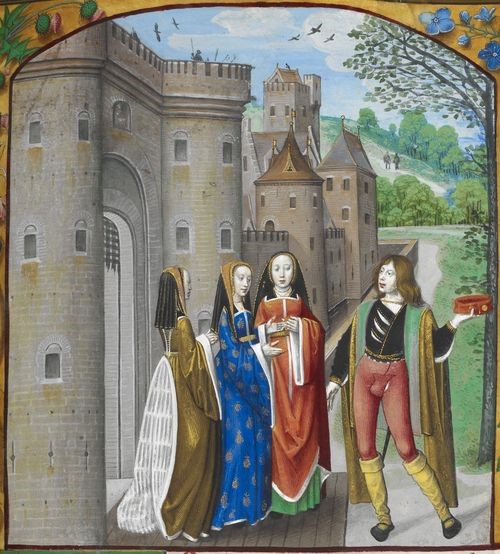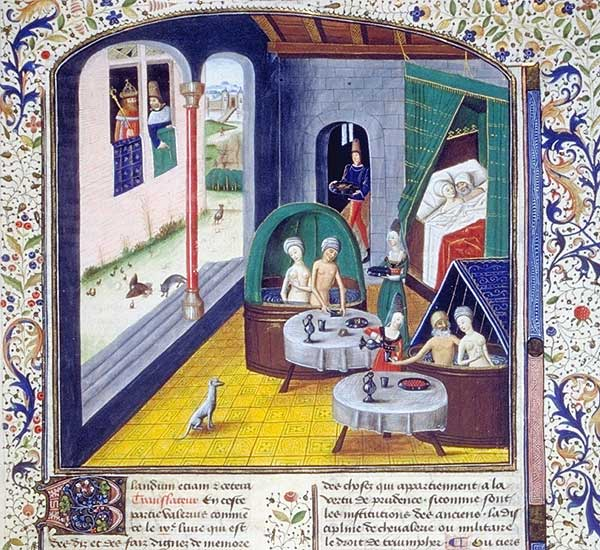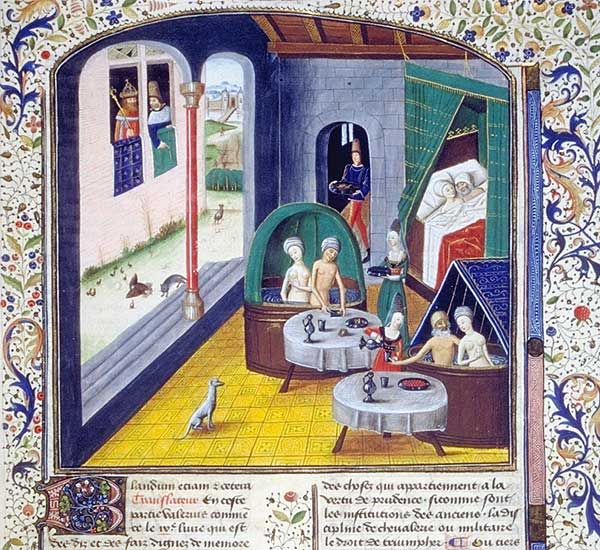My lovely lambs, if you are not on Twitter, I mean first of all congrats for not getting involved in that hellsite? Second of all, however, you may have been missing out on SWARM (the twitter of the amazing Swarm Collective) taking over the legendary goal keeper Neville Southall’s twitter account in order to talk about sex workers’ rights. It has been a generally wonderful thing to see these voices elevated outside of the usual bubble, and I for one have been super pleased to see decrim discussed in a more public way.
Unfortunately, Big Nev and the amazing collective of sex workers behind SWARM have received much too much pushback from would-be ‘feminists’, including members of the so-called Women’s Equality Party here in the UK who have come at the genuine concerns of sex workers with offensive, degrading, and dehumanising stuff like this:

What these haters have in common is usually a belief in, and often financial backing from, what anthropologist Laura Agustín has dubbed ‘the rescue industry’. The rescue industry sees all women who engage in sex work as victims, relying heavily on modern ideas of such women as ‘fallen’ or somehow soiled or victimised. The latest part of the trend is to insist that sex workers advocating for their own humanity are part of the so-called ‘pimp lobby’ a theoretical cabal of men who somehow are able to lobby at a high-level for sex work so that they can control women, while also keeping sex mostly illegal world-wide. *thinking emoji*
Now, far better academics than me have written extensively on the modern rescue industry and the general shadiness surrounding it, and I recommend you look particularly at the work of Agustín and the statistical analysis of Brooke Magnanti if you are looking for an in-depth discussion of the myriad ways in which this concept is flawed. What we are gonna talk about today is how this concept – that women selling sex are necessarily degraded and need to be saved from their circumstances – is an extremely new one.
Now I know that I am constantly ranting about medieval sex work (#sorrynotsorry), so by now you ought to know the gist of it. Namely, that in the medieval period sex work was thought of as necessary because if unmarried men didn’t have access to sex, their unrequited lust would turn into violence. Therefore, everyone from St. Augustine to St. Thomas Aquinas affirmed that sex workers needed to exist in order to keep the peace. Hell, your boy Augustine was out here insisting that if you ‘[r]emove prostitution from human affairs and you will destroy everything with lust’, and we’ve all been there.
Cities especially were interested in making sex workers available in order to keep it chill. We have records from all over medieval Europe attesting to cities’ interest in keeping orderly brothels. Often these brothels were municipally chartered, especially in the Holy Roman Empire and France, meaning that cities themselves sort of licenced brothels and said that particular institutions were allowed to exist.
Because this was a system of legal sex work, that meant that there were rules about how all of this went down. If there were municipally chartered brothels, usually sex work had to take place specifically within them. Often, medieval cities would legislate that sex work had to take place at the edges of a town, or outside the city walls. Here in London (represent), for example, sex work usually took place across the river in Southwark in order to adhere to these rules. A lot of the time sex workers also had to be easily distinguishable. London’s ladies, for example, had to wear ‘hoods of ray’ or black and white to mark themselves out.

There was also, unsurprisingly, a fair amount of snippiness surrounding women who participated in sex work. A London sumptuary law from 1382, for example, tried to extend rules about sex work specifically because they wanted to protect the sensibilities of ‘honest’ women, e.g. the normals. And if you didn’t follow the rules? Well, it wasn’t great. For a chapter I just wrote about sex work in late medieval Prague (pre-order YOUR copy of Same Bodies, Different Women, from Trivent Publishing TODAY!) for example, I found that if women were keeping brothels outside of dedicated areas, they could be excommunicated from the Church and locals were often allowed to just straight up chase them out of the neighbourhood. Super friendly and stuff all around, non? So, the whole thing was nuanced. It was seen as necessary, but people were still kinda about the whole thing, and tried to keep it restricted.
Even given all of this stigma and all of the legal restrictions, plenty of women still took up sex work. Why? Well it was one of the only forms of work available to women, especially women who weren’t tied to a specific family, plot of land, or trade. A single woman could support herself through sex work, and sometimes very handsomely.
We have a hint from some medieval lives of St Mary of Egypt, one of the so-called prostitute saints that brothel life was considered pretty alright in the medieval period:
She took a dwelling with the prostitutes, There she sold her body. She was white as a flower, Had the love of the young men, All the young men came to the brothel For her beauty. She received them willingly, Not just for their money, But for her pleasure She had them with her all night.[1]
Not only is Mary here getting hers, but she has hella customers and according to one Spanish version of the story she was celebrated throughout Alexandria.[2] An on-going trope in these saints’ lives was that these women were not just sex workers, but celebrated sex workers who were making CASH MONEY. This is part of why these women were even made saints. When they decided to give it all up for Christ they weren’t just giving up a life full of sexy times, but a luxurious life, which is what made them holy. If they had been totally poor then dedicating themselves to a life of poverty and praying wouldn’t be very impressive as they were basically already doing it.

Obviously, life was not great for all sex workers all the time, however. It was fairly common, for example, for sex workers in Prague to take up that line of work after falling into debt and having to come up with a quick way to make cash. So it’s all a bit of a muddle. Some women were doing sex work because it was the work they could get, and they needed to survive. Some women were doing it because they were into it and they were making bank. You know, like now. It was a job. Women did it for different reasons.
So what if you wanted to stop being a sex worker? Well the number one remedy for that was to get yourself a man. If you got married and started a family that was all the penance you needed to do. After all, if sex work was necessary, the Church couldn’t very well tell a woman that she was damned for life for participating in it. Provided you got a man to vouch for you and became his property it would all be alright! LOL!
But say you got that Catholic guilt, and you feel pretty bad about all the sex and whatnot? Well, the prostitute saints could be your guide here and the answer was to get real religious, real quick. If you had the money, you could choose to join the Magdalene order, a group of nuns who were initially mostly penitential former sex workers, like their patron saint Mary Magdalene. However, by the later medieval period this had largely turned into just a regular old order of nuns, and this option kinda went out the window.
Periodically, other people would take up the baton on this and attempt to provide new communities for repentant women. My boy Jan Milíč of Kroměříž (I’ll stop posting the link to my thesis once y’all have read it, which is to say NEVER) started a community for women leaving sex work in the houses of a former brothel, which he called Jerusalem. Was it essentially a religious order without a rule, which was kindasorta heresy? OK yeah, it was. But mostly it was a big community of women who didn’t feel like getting married (shout OUT to these bad bitches) after leaving sex work, living alongside a bunch of preachers. They all thought Antichrist was about to come. It got wild.
These orders, and these attempts, could very much be seen as a sort of a proto rescue industry. There were certainly people who were specifically interested in dissuading women from doing sex work. Sometimes that was weirdos like Milíč who were surrounding themselves with communities of sex workers. Sometimes it was randoms like Zosimous of Palestine, the hater who persuaded Mary of Egypt that she should probably feel bad about having so much sex and money. Joan of Arc was also a celebrated hater, and famously chased a bunch of sex workers who were just trying to make a damn living following the army around off, perhaps making her the patron saint of SWERFS. (I said it.) There’s never been a shortage of religious people around trying to make sex workers feel bad about what they were doing, is what I am saying.

However, a way that this approach differs dramatically to the rescue industry today is that these people didn’t just say to women ‘I think it is bad to be a sex worker, so I am going to take away your livelihood now’, they gave them support to change their lives as well. The Church encouraging women to marry out of sex work was also a way of ensuring that they could be taken care of. Milíč closed brothels, but he didn’t kick the women who worked there out – he started a community that they could stay in and receive food, shelter, and clothing. The Magdalenes did the same thing, embracing former sex workers, and living alongside of them. Even haters like Joan of Arc basically just sent sex workers away. They didn’t try to have them arrested or anything.
The modern rescue industry doesn’t pay that. They talk a big game about wanting to help women, sure, but mostly their efforts to bring about awful stuff like the Nordic Model, do other than pushing sex workers further and further underground. The criminalisation of Back Page, after the wrong-headed passage of SESTA-FOSTA in the States, which is celebrated by the rescue industry, has been roundly decried by sex workers for making their jobs more dangerous. If the place you are working in with another sex worker for your own safety is shut down and called a brothel, what are the rescue industry doing to ensure that these women are safe or have alternatives? The rescue industry’s insistence that anyone who has travelled to another country to do sex work has been ‘trafficked’, results in the deportation of migrant women who are caught doping sex work by police. Really nice support there of women you claim are victims. Absolutely stunning. Well done all around rescuers. Very good rescuing.
The modern version of the Magdalene order also has a super shameful history in the same vein. What used to be a well-meaning medieval order morphed into the Magdalene ‘laundries’ of the eighteenth to twentieth century, where sex workers were basically made to work off their theoretical sinfulness. The conditions were horrid, and the work basically slave labour. It was a horrific modern shambles in the name of ‘saving’ these women who had ‘fallen’.
The medieval model was extremely not here for this. If you were going to tell a woman not to participate in sex work, you had to give her a viable option to support herself otherwise, because everyone knew that sex work was work, even if it wasn’t work that they thought was awesome.
In Prague, for example, there was a bargain basement Milíč named Master Ulric, who didn’t like the totally legal brothel Obora. One day he decided that he was gonna save some souls much like the rescue industry does now, by just straight up marching in and chasing all the sex workers there away. This did not go down well. The sex workers went straight to the magistrate, who took them back home, kicked Master Ulric TF out, and made sure that the women were settled back in. You couldn’t just disrupt a working brothel, and unless you were Milíč and had a plan for where the women could go when you did shut one down, the city of Prague didn’t want to hear it.

Moreover, the treatment of sex workers now at the hands of these people who would ‘rescue’ them shows an ingrained distain for any person who does sex work, as though they are irrevocably changed. The intimate that women who do sex work because it is the work that is best for them are irredeemable ‘sex bots’, poisoned and unable to truly know their own minds. Women who take up sex work because of financial hardship and the limited options available in the current late stage capitalist hellscape are broken, fallen, and irredeemably damaged. Someone must save them.
The medieval response to this was different. Were sex workers seen as slightly shady? Yes. That’s why you were allowed to chase them out of your neighbourhood is the sex work they were engaging in was outside of legal norms. However, they could also leave sex work at any time, become a wife and mother, and generally move on with very little social stigma. If they wished for a religious life that was also entirely possible, and they were received as equals into sororities of nuns. Medieval sex workers were not women who were marked as broken or fallen for life. They were women who could choose an alternative and who people would give an alternative to.
Sex work has existed since humans came up with the concept of money. It is not going away, and Western society has grappled with that fact in differing ways since Western society was a thing. The puritanical amongst us would have you believe that sex work is always bad, degrading, and destroys women. They say that sex workers sell their bodies, must be rescued, and that anyone who would choose that life is brainwashed. Are there women in sex work in horrible situations who wish to leave? Absolutely. Forcing them to do the work they do illegally and stripping them of ways to be protected in our society, or taking away their means of supporting themselves, is not the way to do it.
If people really want to give sex workers options outside of sex work, perhaps they could learn something from the medieval approach to it. Women who don’t want to be doing sex work any more need to be given viable alternatives to that work. They need to be able to feed, house, and clothe themselves. They also certainly do not need the stigma that we currently attach to sex work, or to be told that they are broken, fallen, and soiled. They need options, and to not be criminalised for the work that they do.
If women don’t want to get out of sex work, which a lot of them do not, maybe – just maybe – we could leave them TF alone and make sure they are allowed to do their jobs with dignity and respect. Medieval people weren’t necessarily keen on sex work, but damned if they wouldn’t come to the defence of sex workers when stupid men started acting a fool.
The medieval period had a legal model of sex work. Now we have an illegal one. Neither is ideal and I believe, like the World Health Organisation, Amnesty International, and most importantly sex workers themselves that decriminalisation of sex work is the best way to make that happen. However, I think we could learn some things from our medieval friends about how to allow women to negotiate sex work, leaving it, and how the work we do is not an indelible mark on our lives.
Sex work is work. I wish we knew that as well as the people who came before us.
[1] Peter F. Dembowski, ed., La vie de sginte Marie tJEflyptienne: Versions en ancien et en moyen fais, Publications romanes et francJaises, 144 (Geneva, 1977), text T, p. 35, lines 111-24, tanslated by Ruth Mazzo Karras in “Holy Harlots: Prostitute Saints in Medieval Legend”, p. 8, which you can and should read here.
[2] “Vida de santa Manor E,gipciaca”, ed. Manuel Alvar, Clasicos Hispanicos, ser. 2, 19 (Madrid, 1972), 2:53, lines 151-54.
If you enjoyed this, please consider contributing to my patreon. If not, that is chill too!
For more on medieval sex, see:
On sex with demons
The Medieval Sex Apocalypse on Drinking with Historians
Doing it Right – A Short Introduction to Medieval Sex for Nerd Nite
Talking sex in the medieval times on Holly Randall Unfiltered
On “alpha” men, sexual contagion, and poorly disguised misogyny
On the plague, sex, and rebellion
No beastiality was never OK, you absolute rabid weirdo
On courtly love and pickup artists
That’s not what sodomy is, but OK
On sexualising the “other”
On Jezebel, makeup, and other apocalyptic signs
On Sex, Logic, and Being the Subject
The Medieval Podcast – Medieval Sexuality with Eleanor Janega
On the Objectification of Sex
On “the way of carnal lust”, Joan of Leeds, and the difficulty of clerical celibacy
On Dildos and Penance
On No Nut November
On cuckolding – a thing
On sex work and the concept of ‘rescue’
On courtly love, sexual coercion, and killing your idols
The history of penis in vagina as default sex at Bish!
Sex and the (medieval) city: social hygiene and sex in the medieval urban landscape
On women and desire
These hoes ain’t loyal – on prostitutes and bad bitches in medieval and hip hop culture


The idea of “rescue industry” is new to me, but it seems not new at all. Thanks for laying it all out here!! My novel includes a group of 19th century sex workers, and beta readers have been concerned that the harlots seem too content and healthy. Based on my research, I didn’t think it was too far-fetched that most of them would be just girls doing a job to get by. The prejudices are amazingly robust.
LikeLike
“You know, like now. It was a job.” I love you.
LikeLiked by 1 person
I have been dismayed watching the rising star of Kamala Harris within the Democratic Party. This was one of her causes as the AG of California. (Including the backpage case) Now this is pretty much the new hobby of the local police departments, constructing absurd scenarios by which to claim someone is a “pimp” and steal millions of dollars in assets. They are not constrained by any commonly understood definition of the word “pimp”. It also bugs me reporters credulously echo the police press releases which conflate “human trafficking” with prostitution, and claim that the alleged pimp was “selling humans”. It must be (or ought to be) awfully demoralizing for all involved to have to abuse the language like this to obscure or oversell what they’re doing, in the face of growing support for the decriminalization of sex work. 🙄
LikeLike
I Agree whole heartedly. I am so tired of seeing her lionized while throwing sex workers under the bus as though they are expendable is not my thing,
LikeLiked by 1 person
Eye opening. Informative. Great article.
LikeLike